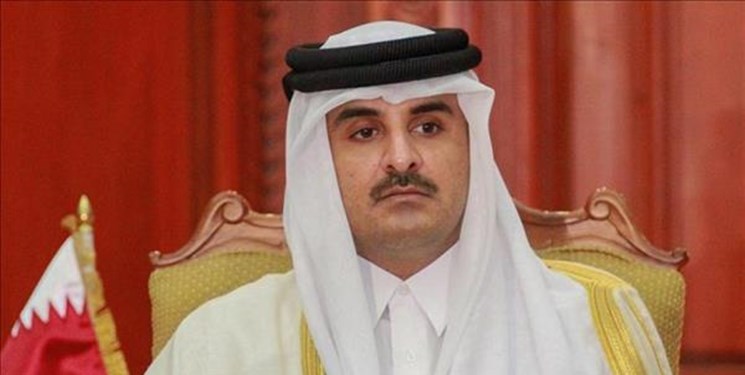Emir of Qatar strongly criticized “Israel’s aggression” at the Jeddah meeting.
During his speech at the Jeddah meeting, the Emir of Qatar considered Israel’s aggression as one of the most important sources of tension and instability in the region.
In his speech at the Jeddah meeting, Qatar Emir Tamim bin Hamad al-Thani emphasized today (Saturday) that Israel’s aggression is one of the most important sources of tension and instability in the region.
According to the report of “Al-Malouma” news site, the Emir of Qatar while pointing out that today’s meeting will be held in the midst of the challenges of the international community and strengthening cooperation in order to find solutions for global issues, added: “The commitment of the involved parties to international laws and the United Nations Charter will save People suffer from many killings and tragedies.
Bin Hamad added: “We emphasize the right of the countries of the region to use nuclear energy peacefully based on international laws. The dangers facing the region, considering the tense international conditions, require finding a just and sustainable solution for the Palestinian issue.
Stressing that “as long as Israel does not stop settlement building, changing the history and identity of Quds and continuing the blockade of Gaza, the tension will remain”, he noted: “Arab countries, despite their differences, are unanimous about the Arab peace initiative.” “They have reached an agreement, and it’s not like they’re going to abandon it just because Israel rejects it.”
Emir of Qatar stated: “Due to selective policies in the implementation of international legitimacy resolutions, it is no longer possible to understand the continuation of the occupation. It is not possible that the role of the Arab countries is to propose solutions and Israel rejects them; Not only to reject, but to increase his inconsistency whenever the Arab countries make concessions.
The Emir of Qatar arrived in Saudi Arabia today to participate in the Jeddah meeting, which was held with the presence of the leaders of some other Arab countries, including Iraq, the United Arab Emirates, and Egypt. US President Joe Biden, who arrived in Saudi Arabia last Friday, was also a guest of this meeting.









